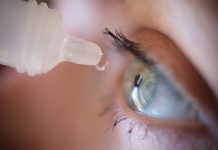
Blood pressure is like the silent rhythm of the body, usually steady and unnoticed until something causes it to swing high or low, especially high.
Sudden spikes in blood pressure can be alarming and sometimes dangerous, leading to immediate health concerns like headaches, dizziness, or even more severe conditions such as strokes. But what causes these sudden surges?
This review aims to shed light on the reasons behind sudden high blood pressure spikes, presenting the information in a straightforward manner that’s easy for everyone to grasp.
Blood pressure is the force exerted by your blood against the walls of your blood vessels. Under normal circumstances, this pressure rises and falls throughout the day naturally.
However, when it spikes suddenly, it can indicate underlying problems or specific triggers. Understanding these can be crucial for managing your health.
One of the most common causes of sudden blood pressure increases is stress.
When you’re stressed, your body releases a flood of hormones, including adrenaline, which temporarily increases your blood pressure by causing your heart to beat faster and your blood vessels to narrow.
This is part of the body’s natural “fight or flight” response. While this response is normal, frequent stress can lead to recurrent spikes in blood pressure, causing wear and tear on your heart and blood vessels.
Another significant trigger is certain substances and medications. For example, excessive intake of caffeine or nicotine can cause temporary but sharp increases in blood pressure.
Similarly, certain medications, such as decongestants, prescription drugs for ADHD, and some herbal supplements, can also contribute to blood pressure spikes.
It’s always important to read labels and consult with a healthcare provider about the potential side effects of any medication.
Physical activity can cause temporary increases in blood pressure. For most people, this isn’t a problem, and blood pressure returns to normal levels shortly after the activity ends.
However, in some cases, particularly in individuals not accustomed to regular exercise, these spikes can be more pronounced.
Medical conditions can also be a culprit. Kidney disease, sleep apnea, and thyroid problems are just a few conditions that can cause significant fluctuations in blood pressure.
These conditions affect the body’s ability to regulate blood pressure effectively, often leading to spikes.
Diet plays a significant role in blood pressure management. Consuming a diet high in salt, for instance, can cause the body to retain fluid, which increases blood pressure.
Alcohol can also have a substantial impact. While small amounts might lower your blood pressure, excessive consumption can lead to sudden spikes and long-term issues.
Preventing these spikes involves understanding and managing their triggers. Stress management techniques such as meditation, regular exercise, and maintaining a balanced diet low in salt and alcohol can help.
Monitoring your blood pressure regularly, especially if you have a history of hypertension, is also crucial. This can help you identify patterns and triggers specific to your body.
In conclusion, sudden spikes in blood pressure can be caused by a range of factors from stress, certain substances and medications, to underlying health conditions and lifestyle choices.
Being aware of these triggers and taking steps to manage them can significantly reduce the risk of experiencing these dangerous surges.
If you’re frequently encountering sudden increases in blood pressure, it’s essential to consult a healthcare provider to rule out any serious underlying conditions and to discuss the best management strategies for your situation.
Keeping a healthy lifestyle not only helps in preventing these spikes but also contributes to overall well-being and longevity.
If you care about blood pressure, please read studies about unhealthy habits that could increase high blood pressure risk, and eating eggs in a healthy diet may reduce risks of diabetes, high blood pressure.
For more information about blood pressure, please see recent studies that early time-restricted eating could help improve blood pressure, and results showing 12 foods that lower blood pressure.
Copyright © 2024 Knowridge Science Report. All rights reserved.



